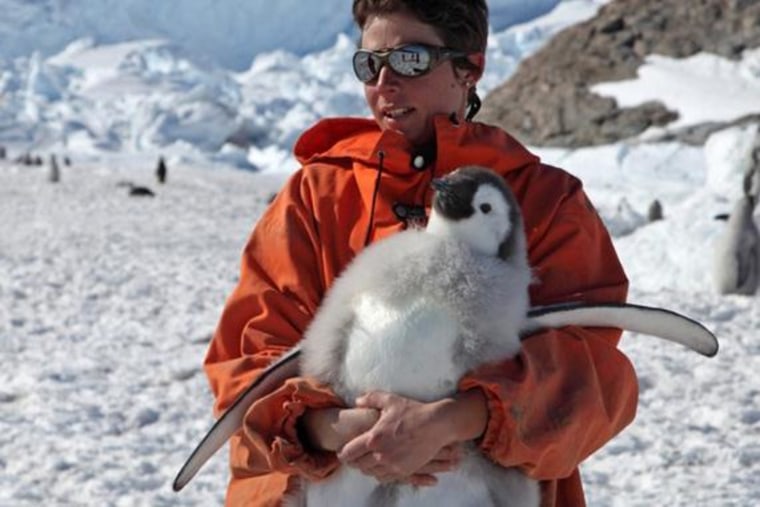The biggest threat to emperor penguins may not be leopard seals or even killer whales, but a much larger predator: global warming.
Climate change, which is quickly melting the sea ice this species depends on for survival, could cause dramatic drops in the number of emperor penguins across Antarctica by the end of the century, a new study finds. Specifically, more than two-thirds of Antarctica's emperor penguin colonies will decline by more than 50 percent by the end of the century under future climate change scenarios.
Sign up for top Science news delivered direct to your inbox.
The researchers, from France, the Netherlands and the United States, are pushing to have this iconic species listed as endangered before its numbers hit critical lows. Doing so, the researchers said, may establish "a new global conservation paradigm for species threatened by future climate change."

Emperor penguins breed and raise their offspring almost exclusively on sea ice. And changes in sea ice concentration (SIC), or the relative area of water covered by sea ice, affect not only penguins, but also the entire Antarctic food web, down to the smallest of species, the researchers noted.
"The role of sea ice is complicated," said Stephanie Jenouvrier, a biologist with the WHOI, in a statement. "Too much ice requires longer trips for penguin parents to travel to the ocean to hunt and bring back food for their chicks. But too little ice reduces the habitat for krill, a critical food source for emperor penguins. Our models take into account both the effects of too much and too little sea ice in the colony area."
- Elizabeth Palermo, Live Science
This is a condensed version of an article that originally appeared in Live Science. Read the entire story here. Follow Elizabeth Palermo on Twitter @techEpalermo, Facebook or Google+. Follow us @livescience, Facebook &Google+.
- In Photos: The King Penguins of Possession Island
- Image Gallery: Sex Habits of Penguins
- Images of Melt: Earth's Vanishing Ice
Copyright 2014 LiveScience, a TechMediaNetwork company. All rights reserved. This material may not be published, broadcast, rewritten or redistributed.
